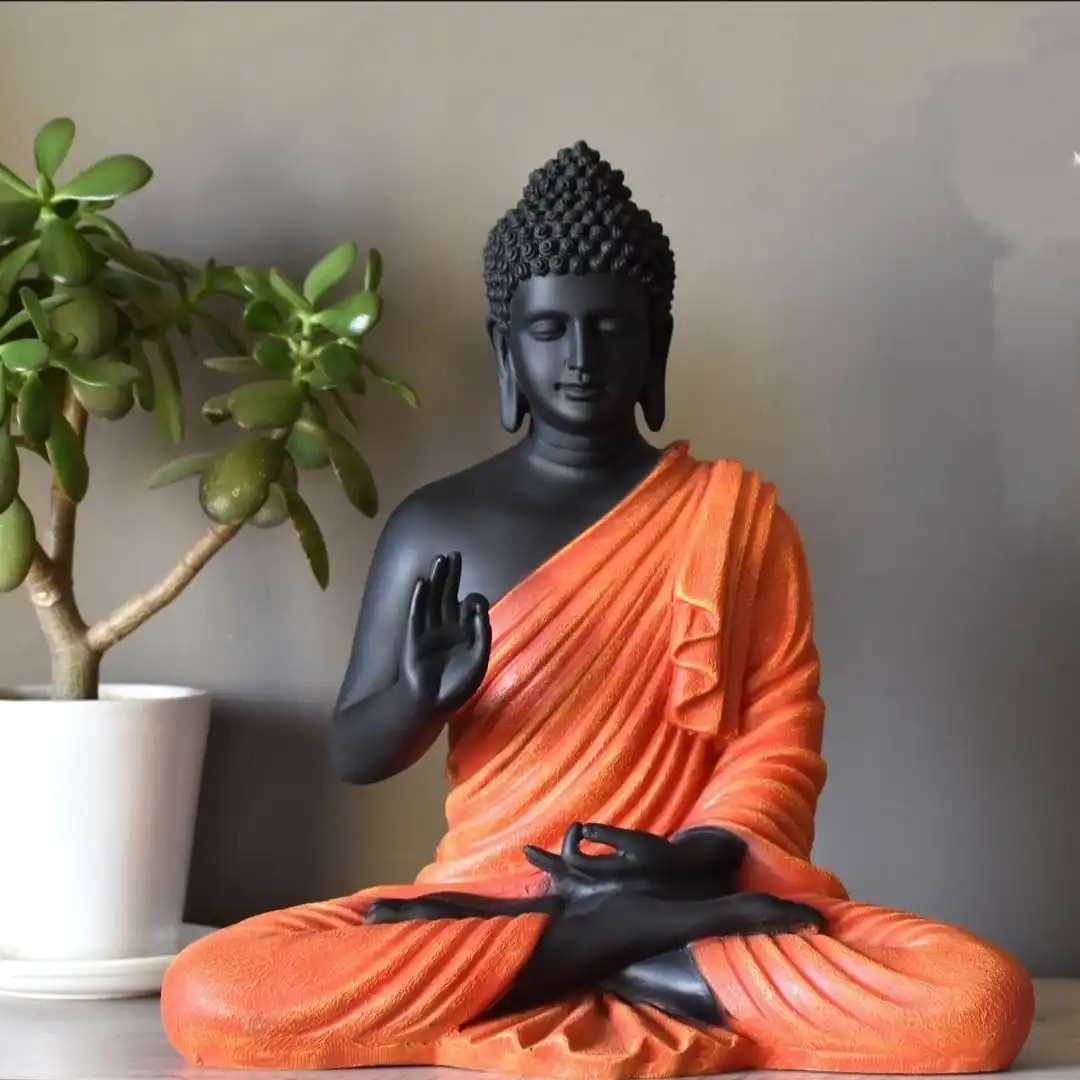When you’re buying traditional décor or ritual items such as idols, samay deepaks, kalash, lotas, or figurines, two materials often come up: white metal and German silver. At first glance, both look similar, silvery, bright, and elegant. But understanding the differences is essential to make the right choice for your needs.
White metal has been a longstanding favorite in Indian handicrafts, known for its affordability, natural hammered shine, and cultural significance. German silver, on the other hand, is an alloy that mimics the appearance of silver but has a slightly different texture and feel. While it often costs a bit more, it’s also popular for decorative and utility items.
In this guide, we’ll explore the composition, appearance, cost, durability, and care requirements of each material. By the end, you’ll know which is better for your purpose, whether it’s a ritual idol for your home, a lamp for daily puja, or a decorative piece for gifting.
For buyers who value authentic craftsmanship and easy-to-maintain traditional pieces, our curated white metal collection at Alankar Gift Centre continues to be a reliable choice.
What is White Metal?
White metal is a lightweight alloy commonly made from a mix of tin, zinc, and sometimes nickel or lead. It has been used for centuries in Indian handicrafts because it’s affordable, versatile, and easy to shape.
The hallmark of white metal is its natural hammered shine. Instead of relying on polish or coating, artisans create fine engraved lines and textures that reflect light beautifully. This gives white metal products a silvery appearance without the high cost of pure silver.
In traditional handicrafts, white metal is widely used for:
- Idols for home temples — especially deities like Lakshmi, Ganesh, and cow-baccha sets.
- Samay deepaks (oil lamps) — favored for their cultural significance and durable finish.
- Kalash and lotas — essential vessels for rituals and pujas.
- Decorative showpieces and figurines — like elephant sets and wall accents.
White metal’s popularity comes from its balance of elegance, affordability, and cultural authenticity. It is lightweight, easy to handle, and blends well into both traditional and modern home décor.
For buyers looking for cost-effective yet authentic ritual items, white metal remains a preferred choice, and at Alankar Gift Centre, it’s at the heart of our curated collection of idols and ceremonial pieces.
What is German Silver?
Despite the name, German silver isn’t real silver. It is an alloy made primarily of copper, zinc, and nickel, known for its bright silvery-white finish. The material was first developed in Germany as a more affordable substitute for silver, which is why it carries the name.
German silver has a denser and slightly heavier feel than white metal. It also tends to have a smoother surface and a whiter tone, often polished to a higher shine. These characteristics make it popular for both decorative and utility items, such as:
- Serving trays, bowls, and cutlery.
- Ornamental lamps and puja thalis.
- Jewelry and showpieces that need a sleek finish.
One of the advantages of German silver is its resistance to corrosion. However, it can develop tarnish-like spots over time if exposed to moisture, and it usually requires more regular polishing than white metal to keep its bright appearance.
While it looks close to silver, German silver is generally more expensive than white metal, making it a choice for buyers who want a slightly more premium aesthetic.
For buyers focused on ritual items and traditional idols, white metal often remains the preferred option due to its cultural legacy and textured appearance. German silver is often chosen for decorative serving pieces or utility items where a smooth, sleek finish is desired.
Key Differences Between White Metal and German Silver
| Feature | White Metal | German Silver |
|---|---|---|
| Composition | Tin, zinc, sometimes nickel/lead | Copper, zinc, nickel |
| Look & Shine | Warm, textured, hammered finish | Cooler, polished, glossy finish |
| Durability | Needs gentle cleaning; prone to water spots | Tarnish-resistant but needs polishing |
| Price | More affordable | Slightly more expensive |
| Best For | Idols, samay deepaks, kalash, traditional décor | Serving ware, jewelry, modern gifts |
| Care | Simple: dusting + occasional lukewarm water cleaning | Frequent polishing to maintain brightness |
If you’re buying ritual items like idols, lamps, kalash, and cow-baccha figurines, white metal remains the preferred choice for its cultural connection and natural hammered shine. German silver is better suited for modern decorative or utility pieces where a sleek, polished finish is desired.
Maintenance and Care
Both white metal and German silver need care to retain their silvery look, but their cleaning routines differ. Here’s a straightforward guide for each:
White Metal Care
- Dust the items every 2–3 days using a soft microfiber or cotton cloth.
- Use a soft brush, such as a makeup or artist’s brush, to remove dust from engraved details and fine patterns.
- For deep cleaning, rinse the product briefly with lukewarm water and gently brush the grooves with a soft-bristle toothbrush.
- Dry the piece immediately with a soft cloth to prevent water spots.
- After using a samay deepak, wipe out leftover oil right away.
- For stubborn oil residue, dip only the affected area in lukewarm water mixed with mild shampoo, brush lightly with a soft toothbrush, rinse, and dry completely.
- Handle decorations like bindu, mala, or stones carefully and avoid rubbing them directly.
- Avoid soaking items in water for long periods, and do not use harsh cleaners or abrasives.
- Store items in a dry cabinet or covered display case.
- Wrap rarely used pieces in soft cotton cloth, not plastic.
- Keep away from prolonged direct sunlight to protect decorative accents.
German Silver Care
- Wipe items gently with a soft, dry cloth after each use.
- Handle with clean hands to avoid fingerprints and smudges.
- For tarnish, apply a mild silver-cleaning paste or solution with a soft cloth, rinse briefly in lukewarm water, and dry thoroughly.
- Avoid soaking items in water and keep them away from high humidity.
- Store pieces in a dry cabinet or display case.
- Use silica gel pouches in storage during humid seasons to prevent tarnish.
- Wrap long-unused items in soft cotton cloth.
- Avoid plastic wraps and keep items away from direct sunlight to preserve their polished finish.
White metal is easier to maintain with simple dusting and occasional mild cleaning. German silver offers a sleek finish but needs more regular polishing and careful storage to prevent tarnish.
Best Uses for Each Material
Choosing between white metal and German silver often depends on the purpose. Here’s how to decide:
Best Uses for White Metal
- Ideal for religious idols such as Ganesh, Lakshmi, or cow-baccha figurines, thanks to its cultural significance and textured, handcrafted shine.
- Perfect for samay deepaks, as it handles oil use well and requires simple cleaning.
- Widely used for kalash, lotas, and other ritual vessels because it is lightweight, durable, and easy to maintain.
- Suitable for auspicious gifting, especially during weddings, housewarmings, and festivals.
- A popular choice for buyers who value affordable, authentic traditional handicrafts.
Best Uses for German Silver
- A strong choice for serving ware, including trays, bowls, and puja thalis, because of its smoother, polished surface.
- Often preferred for ornamental and decorative pieces that require a sleek, modern look.
- Popular for jewelry and accessories, thanks to its whiter tone and glossy finish.
- Chosen for contemporary gifting where a premium, polished aesthetic is desired.
- Best for buyers who are comfortable with regular polishing and upkeep to maintain its bright finish.
Buyer’s Perspective – Which One Should You Choose?
Choosing between white metal and German silver comes down to purpose, style preference, and maintenance comfort. Both materials have their own strengths, but one may suit your needs better than the other.
Choose White Metal If You:
- Want ritual items such as idols, samay deepaks, kalash, lotas, or cow-baccha figurines with traditional and cultural value.
- Prefer affordable, easy-to-maintain pieces that don’t require regular polishing.
- Appreciate the handcrafted, textured look that reflects tradition and authenticity.
- Need pieces that hold spiritual significance and are ideal for auspicious gifting.
- Value items that work well in both daily rituals and festive occasions without much upkeep.
Choose German Silver If You:
- Are looking for serving ware, jewelry, or ornamental pieces with a sleek, polished, and modern aesthetic.
- Don’t mind regular polishing and careful storage to maintain the glossy finish.
- Prefer a slightly heavier and smoother material for premium-feeling decorative items.
- Want contemporary gifting options that stand out with a bright, refined look.
For cultural and ritual needs, white metal remains the most practical and meaningful choice. For modern décor or utility pieces, German silver’s polished appearance can be more appealing, but it does demand extra care.
If you’re looking for authentic, handcrafted white metal items like idols, lamps, and ritual vessels, explore the curated collection at Alankar Gift Centre, where tradition meets quality craftsmanship.
Frequently Asked Questions (FAQs)
No. German silver is an alloy of copper, zinc, and nickel. It looks like silver but contains no actual silver.
White metal is generally more affordable because it’s lighter and easier to produce. German silver costs more due to its copper and nickel content.
White metal is the preferred choice for idols, samay deepaks, kalash, and lotas because of its traditional look, cultural significance, and easier maintenance.
Yes. German silver can develop tarnish-like spots over time, especially in humid conditions, and requires regular polishing to maintain its bright finish.
White metal doesn’t tarnish like silver but can appear dull if dust or moisture accumulates. Gentle dusting and occasional lukewarm water cleaning keep it bright.
Wipe out excess oil after each use. For hardened residue, soak the lamp section in lukewarm water with mild shampoo, brush gently, rinse, and dry thoroughly.
White metal is easier to care for because it requires only light dusting and occasional cleaning. German silver needs regular polishing and careful storage.
You can find a curated range of handcrafted white metal idols, lamps, and vessels at Alankar Gift Centre, trusted for quality and tradition.
Wrapping Up: Get the Best White Metal Items at Alankar Gift Centre
Both white metal and German silver offer the elegance of a silver-like finish without the cost of real silver, but they cater to different needs.
White metal stands out for its cultural authenticity, hammered texture, and easy upkeep, making it the go-to choice for ritual items like idols, samay deepaks, kalash, lotas, and cow-baccha figurines. Its simple cleaning routine makes it practical for everyday use in homes and temples.
German silver, on the other hand, is ideal for buyers who want a sleeker, polished, and more modern appearance for serving ware, jewelry, and decorative pieces. However, it does demand more frequent polishing and careful storage to retain its bright look.
For most ritual, cultural, and traditional décor needs, white metal remains the trusted, low-maintenance, and meaningful choice.
If you’re ready to bring home authentic, handcrafted white metal idols, lamps, and other ceremonial pieces, explore the curated collection at Alankar Gift Centre, where tradition meets craftsmanship and quality.
Kalaburagi, Karnataka, India
Alankar Gift Centre
We bring you timeless gifts, décor, and essentials for every occasion. Trusted for quality and variety, we make every celebration memorable.

50+
Business Years
25k+
Happy Clients
99%
Client Satisfaction
40+
Product Range
Alankar Gift Centre & Home Appliances
Main: Shop No. 8-485/15B Beside Shivaji Khanawali, Fort Road, Kalaburagi, 585101
Branch: #2-238/12 International Trade Complex, 1st Floor, Opposite Public Garden Gate, Station Road, Kalaburagi, 585101
Business Hours
Monday to Saturday
11:00 A.M. to 8:30 P.M.
Sunday
11:00 A.M. to 03:00 P.M.
Phone:
+91 9036788766
+91 9739990078


